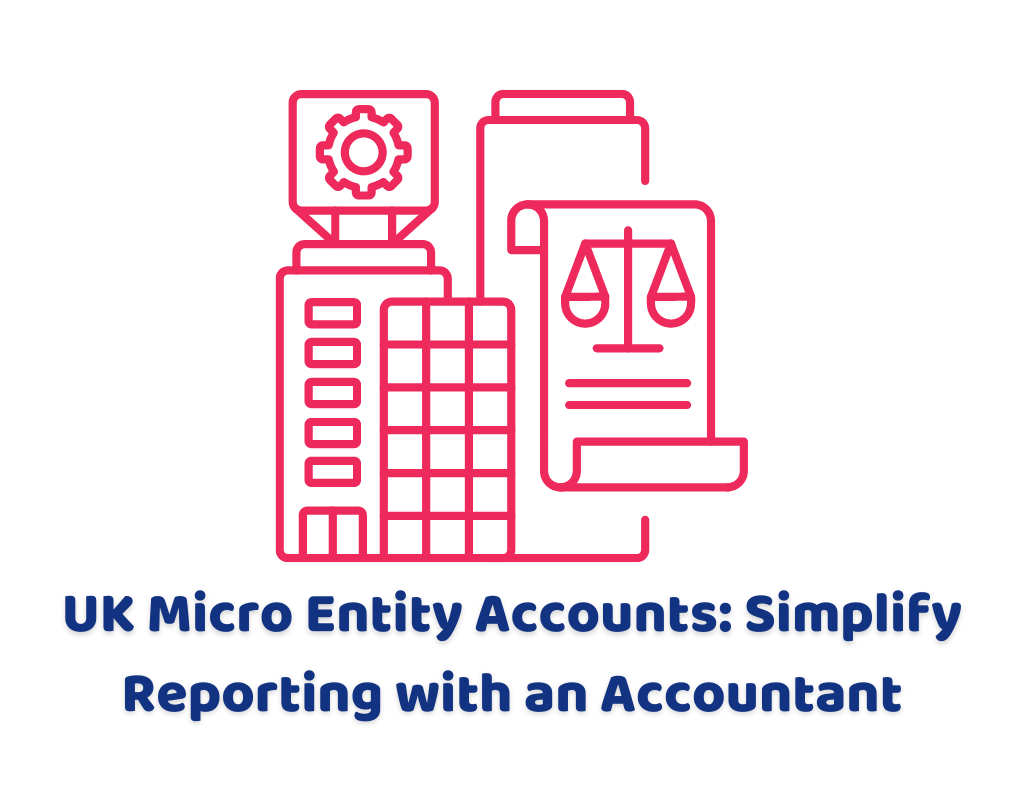In the intricate world of business finance, micro entities represent a category of small-sized businesses with comparatively simpler accounting requirements. This blog explores the concept of micro entity accounts, delineates who needs to file them, underscores the importance of enlisting an accountant’s expertise, and illustrates how AccountingFirms.co.uk can be instrumental in connecting you with the perfect accounting professional for your micro entity’s financial reporting needs.
What are Micro Entity Accounts?
Micro entity accounts refer to a simplified financial reporting framework designed for the smallest entities. In the UK, a business is classified as a micro entity if it meets at least two of the following conditions in a financial year: a turnover of £632,000 or less, £316,000 or less on its balance sheet, or 10 employees or fewer. This concessionary accounting regime aims to reduce the administrative burden on small businesses by allowing them to prepare and submit abridged accounts that require fewer disclosures than those of larger companies.
Who Needs to File Micro Entity Accounts?
Micro entity accounts are specifically tailored for small businesses and startups that qualify under the criteria set by the UK’s Companies House. These include sole traders, partnerships, and small private limited companies that do not exceed the thresholds for turnover, balance sheet total, and employee count. Filing micro entity accounts is a statutory requirement for eligible businesses, ensuring compliance with UK accounting standards and regulatory obligations.
Why You Need an Accountant?
While the process of preparing micro entity accounts is simplified, the expertise of a professional accountant is invaluable for several reasons:
1. Compliance Assurance: Accountants are adept at navigating the complexities of financial regulations, ensuring that your business remains compliant with the latest accounting standards and tax laws.
2. Time and Cost Efficiency: Leveraging an accountant’s expertise can save you considerable time and money, avoiding common pitfalls and potential fines for non-compliance.
3. Strategic Financial Planning: Beyond compliance, accountants can provide strategic advice on tax planning, cash flow management, and financial growth strategies, tailoring their services to the unique needs of your micro entity.
How AccountingFirms.co.uk Can Help
Finding the right accountant, particularly one proficient in handling micro entity accounts, can be a daunting task. AccountingFirms.co.uk simplifies this process by offering a comprehensive platform where small businesses can connect with accounting professionals specializing in various areas, including micro entity financial reporting.
– Tailored Matchmaking: Our platform allows you to specify your accounting needs, connecting you with professionals experienced in micro entity accounts.
– Verified Professionals: We ensure that all listed accountants are certified and possess a proven track record in assisting micro entities.
– Ease of Use: With an intuitive interface and detailed profiles of accounting firms, you can easily compare and select the right accountant for your business needs.
In conclusion, while micro entity accounts offer a streamlined approach to financial reporting for small businesses, the importance of professional accounting support cannot be overstated. Whether ensuring compliance, optimizing financial management, or seeking strategic advice, an accountant is an invaluable ally for your business. Through AccountingFirms.co.uk, you can effortlessly find a trusted accounting professional tailored to your micro entity’s needs, ensuring your financial reporting is in capable hands.
Disclaimer: The information provided on AccountingFirms.co.uk is for informational purposes only and should not be considered as financial advice. Always consult with a professional accountant to ensure compliance with UK laws and regulations.

